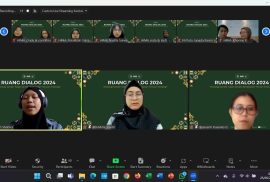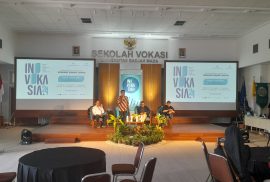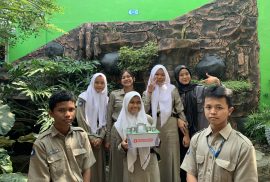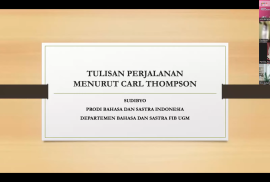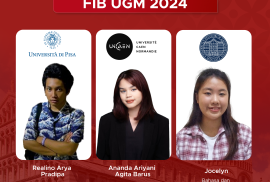Saturday, May 25, 2024, the UGM Archaeology Student Association (HIMA), Faculty of Cultural Sciences UGM, held a 2024 Dialogue Room Webinar on Gender Archaeology with a sub-theme entitled, “Gender Studies Based on Archaeological Findings” which is open to the public. This webinar was guided by Haybah Shabira as the Moderator of the activity and two special resource persons, namely UGM Archaeology Lecturer, Dr. Mimi Savitri, M.A. and Archaeological Researcher at Pura Mangkunegaran, Tyassanti Kusumo Dewanti, M.A., who has a number of experiences and contributions in gender archaeological studies. This activity aims to increase the knowledge of archaeology students and the general public about the position or division of roles of people in the past, both men and women in living their daily lives in the social, economic, or political fields. The study is based on archaeological data findings in the form of reliefs, inscriptions, or ancient manuscripts.
The activity session was opened with remarks from the Advisor of HIMA UGM, Drs. Musadad, M.Hum., who paid attention to the importance of gender studies in the discovery of archaeological remains in the role and duties in the scope of society. Followed by the delivery of the first material given by Dr. Mimi Savitri, M.A., as an introduction and opening material to get to know more about gender archaeological studies in the discovery of archaeological remains. The next material was presented by Tyassanti Kusumo Dewanti, M.A., explaining previous research on the position and role of women in history, domination and power relations in 9th and 10th century Java, and evidence of the role of women based on findings in the inscription text. After the presentation ended, a question and answer session was opened to the webinar participants.
It is hoped that this Dialogue Room Webinar can be a forum for the general public and archaeology students to discuss and find out what archaeological issues are and be useful for prospective archaeologists if they face the same problems.

